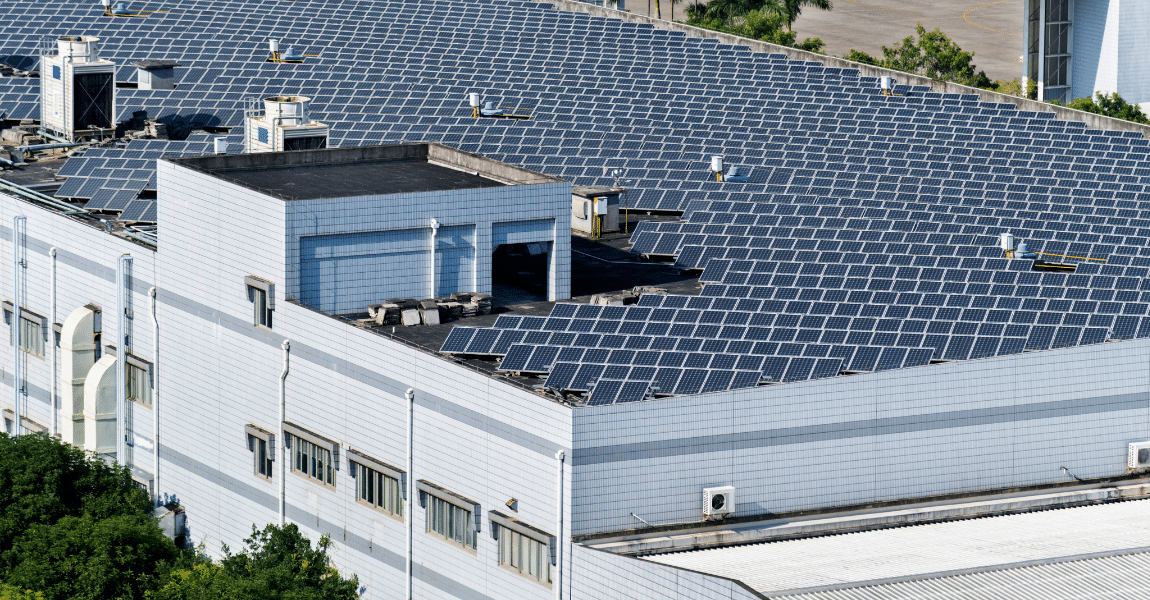Solar panels have become increasingly popular in recent years as a viable source of renewable energy for both residential and commercial use. For businesses, the installation of solar panels can offer significant benefits, including reduced energy costs, increased energy efficiency, and a positive impact on the environment.
However, before making the decision to invest in solar panels for your business, there are several key considerations to take into account.
Assessing the suitability of your property for solar panel installation is the first step in the process. Factors such as the size and orientation of your building, as well as the amount of shade it receives, will determine the potential for solar energy generation. Additionally, understanding planning permissions and building regulations is crucial to ensure compliance with local laws and regulations.
Once these initial considerations have been addressed, it is important to weigh up the costs and benefits of solar panel installation, as well as choose the right type of solar panel for your business. This article will provide an in-depth analysis of these key considerations, as well as explore ways to maximize the energy efficiency of your business with solar panels.
Assessing Your Property’s Suitability for Solar Panels
The evaluation of the property’s potential suitability for solar panel installation is a crucial factor to consider when assessing the feasibility of utilizing solar energy for commercial purposes.
One of the key considerations in this assessment is the roof orientation of the building. This is because solar panels work best when they are installed on a south-facing roof, which receives the maximum amount of sunlight throughout the day. Therefore, it is important to evaluate whether the building’s roof is oriented in a southerly direction or not.
Another important consideration when assessing the suitability of a property for solar panel installation is the shading analysis. This involves evaluating the amount of shade that the building’s roof receives throughout the day. If the roof is heavily shaded by nearby trees, buildings, or other obstructions, it may not be a suitable location for solar panel installation.
This is because shaded panels produce less energy than those that are in direct sunlight, which can significantly impact the overall efficiency of the solar energy system.
In addition to roof orientation and shading analysis, other factors such as the size and condition of the roof, the building’s energy usage, and local regulations should also be taken into account when assessing the suitability of a property for solar panel installation.
By conducting a thorough evaluation of these factors, businesses can determine whether solar energy is a viable option for their commercial needs, and if so, what steps they need to take to maximize the efficiency and effectiveness of their solar energy system.
Understanding Planning Permissions and Building Regulations
Compliance with planning permissions and building regulations is crucial for any construction project, especially when it comes to solar panel installations in commercial settings. It is important to understand the local regulations and obtain the necessary permits before proceeding with any solar panel installation. Failure to comply with regulations and obtain permits can lead to penalties and even the removal of the solar panels.
One of the potential challenges with obtaining permits and complying with regulations is the environmental impact of the solar panel installation. This includes the impact on wildlife, vegetation, and water sources. It is important to work with an expert and obtain their advice on how to minimize the environmental impact of the installation. This can include using non-toxic materials, minimizing the use of heavy machinery, and avoiding installation in sensitive areas.
Understanding planning permissions and building regulations is crucial for any solar panel installation in commercial settings. It is important to be aware of the local regulations and obtain the necessary permits to avoid penalties and ensure the longevity of the installation. Additionally, it is important to consider the environmental impact of the installation and work with experts to mitigate any potential negative impacts.
Weighing Up the Costs and Benefits of Solar Panel Installation
Assessing the financial and environmental impacts of installing renewable energy systems requires careful evaluation of both short-term and long-term implications. One of the key considerations when installing solar panels for commercial use is the return on investment (ROI). The ROI is dependent on several factors such as the cost of installation, energy savings, the cost of electricity, and the lifespan of the solar panels.
The initial cost of solar panel installation can be high, but the long-term benefits of using renewable energy can outweigh the costs. Installing solar panels can reduce electricity bills and provide a reliable source of energy for businesses. Furthermore, businesses can also benefit from government incentives and subsidies for using renewable energy, such as tax credits or grants.
Another important consideration when installing solar panels is the environmental impact. Businesses have a responsibility to reduce their carbon footprint and contribute to a sustainable future. Solar panels can help to reduce greenhouse gas emissions and mitigate the effects of climate change. This can have a positive impact on the environment and contribute to a more sustainable future.
Overall, the financial and environmental benefits of installing solar panels make it a worthwhile investment for businesses looking to reduce their energy costs and carbon footprint.
Choosing the Right Type of Solar Panel for Your Business
Selecting the appropriate kind of photovoltaic module is crucial for the successful implementation of solar energy systems in commercial settings. One of the key factors to consider is panel efficiency. Higher efficiency panels can generate more electricity per unit area, which is important for businesses with limited roof or ground space. Additionally, higher efficiency panels can help businesses save on installation and maintenance costs by reducing the number of panels required to generate the desired amount of electricity.
Another important consideration when selecting solar panels for commercial use is the environmental impact of the technology. While solar energy is a clean and renewable source of power, the production of solar panels can have negative environmental consequences. Businesses should look for panels that are manufactured using sustainable practices and materials. They should also consider end-of-life management options for the panels, such as recycling or repurposing.
Lastly, the type of solar panel selected will depend on the specific needs and goals of the business. For example, some businesses may prioritize cost savings and choose a less expensive type of panel with lower efficiency. Others may prioritize sustainability and opt for more expensive, environmentally-friendly panels. Ultimately, the choice of solar panel will depend on a range of factors, including the size and location of the business, budget, and environmental values.
Maintaining and Monitoring Your Solar Panels
To maintain optimal performance and longevity of photovoltaic modules, regular inspections and cleaning should be conducted by qualified technicians.
Remote monitoring is a tool that can help detect any issues or malfunctions in the solar panel system. This technology allows technicians to access real-time data on the performance of the panels, identify problems, and address them promptly.
In addition to remote monitoring, it is important to have a repair service in place to ensure quick and efficient resolution of any issues that may arise. A reliable repair service can help minimize downtime and prevent any losses associated with the interruption of power supply. It is recommended that businesses establish a maintenance contract with their solar panel provider to ensure regular inspections and repair services are available.
A cleaning schedule should be established to ensure proper panel upkeep. Dust, dirt, and debris can accumulate on the solar panels, reducing their efficiency and overall performance. Regular cleaning can help prevent this buildup and ensure optimal solar panel performance. Businesses should consult with their solar panel provider to determine the appropriate cleaning schedule for their specific environment and panel type.
By implementing these practices, businesses can ensure the long-term success and effectiveness of their solar panel systems.
Maximizing Your Business’s Energy Efficiency with Solar Panels
Maximizing energy efficiency through the use of sustainable power sources can lead to significant cost savings and reduction in carbon emissions for organizations. One of the most effective ways to achieve this is by installing solar panels. However, the initial cost of installation can be a significant barrier for many businesses. Therefore, it is essential to consider financing options and calculate the return on investment (ROI) before making a decision.
There are various financing options available for businesses looking to install solar panels. These include leasing, power purchase agreements, and loans. Each option has its advantages and disadvantages, and it is crucial to evaluate them carefully to determine which one is the best fit for your organization.
Additionally, calculating the ROI of solar panel installation is essential to determine the financial benefits of the investment. This calculation should consider factors such as the cost of installation, energy savings, and potential tax incentives.
Apart from financial benefits, installing solar panels can also have a positive impact on branding and corporate social responsibility. Consumers are becoming increasingly environmentally conscious, and businesses that prioritize sustainability are more likely to attract and retain customers. Additionally, investing in renewable energy sources can improve a company’s reputation and demonstrate a commitment to reducing carbon emissions. Therefore, businesses should consider the long-term benefits of solar panel installation beyond financial savings.
Frequently Asked Questions
How long does it typically take for a solar panel installation to pay for itself?
The solar panel ROI and commercial solar payback time depend on various factors such as installation costs, incentives, energy prices, and usage. Typically, it takes 5-10 years for a solar panel installation to pay for itself.
Are there any tax incentives or rebates available for businesses that install solar panels?
Businesses that install solar panels may be eligible for tax incentives and rebates. These can contribute significantly to cost savings, reducing the environmental impact of operations.
Can solar panels be installed on all types of commercial properties, such as warehouses or office buildings?
The installation of solar panels on commercial properties depends on structural feasibility and panel placement. Warehouse or office buildings may require specific considerations due to roof type, orientation, and shading.
What happens to excess energy generated by the solar panels?
Excess energy generated by solar panels may be stored using energy storage solutions or fed back into the grid through net metering programs. These options allow for efficient utilization of renewable energy and can provide financial benefits for businesses.
How do solar panels affect a building’s property value?
The installation of solar panels on a building may impact the property value, with various appraisal considerations to be made. Factors such as the age and condition of the system, energy savings, and potential incentives should be taken into account when evaluating the impact on property value.
Conclusion
In conclusion, solar panels are a viable option for businesses looking to reduce their carbon footprint and save on energy costs. However, before making the decision to install solar panels, businesses must carefully assess their property’s suitability, understand planning permissions and building regulations, and weigh up the costs and benefits of installation.
Additionally, choosing the right type of solar panel and maintaining and monitoring them is crucial for maximizing energy efficiency and achieving long-term savings. It is important for businesses to recognize that solar panel installation requires an upfront investment, but the long-term benefits can outweigh the initial costs.
By reducing energy bills and potentially generating excess energy to sell back to the grid, businesses can save money while also contributing to a more sustainable future. Furthermore, implementing energy-efficient practices in conjunction with solar panels can further reduce energy usage and promote responsible environmental stewardship.
Overall, careful consideration and planning are necessary to ensure successful implementation of solar panels for commercial use.


